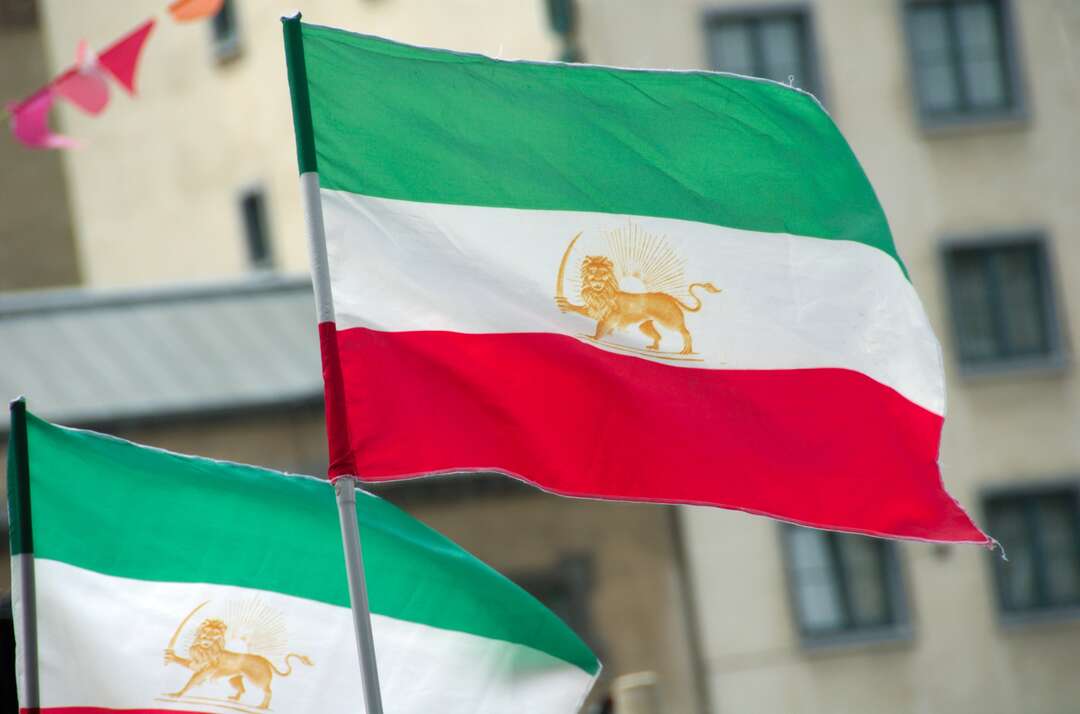-
The Iranian resistance reveals the mullahs' terrorist networks in Europe

The Iranian regime's use of diplomatic cover to spread its terrorist and espionage networks in the world is not limited to Asadullah Asadi
Fourteen months ago, German police arrested a key operative of the Iranian regime's long-running terror network in Europe under a diplomatic cover.
Later, the German authorities handed over the terrorist diplomat Asadullah Asadi, 46, who was the head of the mullahs' intelligence room in Europe, which was located in the Tehran regime's embassy in Vienna, to the Belgian judiciary at the request of the latter. Despite the desperate attempts by the Iranian regime to prevent the trial of Asadi and release him from prison in order to transfer him to Iran.
The diplomat, who had been working at the embassy since June 23, 2014 under the cover of the position of the third counselor, was found to have been involved, according to the Belgian prosecutor, in the terrorist plot directed against a grand gathering of the Iranian opposition at the Villepinte Hall in Paris, France, on June 30, 2018.Intelligence information revealed that Asadullah Asadi went to Tehran on June 20, where he received high explosives weighing up to half a kilogram, and on June 22 he came from Tehran to Vienna carrying in his Diplomatic Pouch those explosive materials, on board of an Airbus plane of Austrian Airlines carrying 240 travelers.
On July 2, 2018, the terrorist diplomat was arrested by German police. On July 6, 2018, the Federal Attorney General issued a sentence of habeas corpus through the investigating judge of the Supreme Court of the country for his activities as an agent for the execution of secret operations (in accordance with section 1, paragraph 99, of the Criminal Code) and for conspiracy to murder (article 1, paragraph 2, and paragraph 211 of the Penal Code).
In March 2018, Asadi gave a mission to a couple residing in the Belgian city of Antwerp to carry out the bombing of the annual gathering of the Iranian opposition abroad at the Villepinte Hall. He was to hand them over the explosive charge (500 grams of an explosive substance, Tri Aston Tree Operoxide TATP) in the Belgian capital of Luxembourg in July 2018.
Asadi's espionage and terrorist actions were not only grounded in Europe, a document revealed by the Iranian resistance indicates that from 2005 to May 2008 he was an agent of the Iranian regime in Iraq to spy and carry out killings of elements of the MEK, the Iraqi opposition, and coalition forces.
According to the document, the Iranian Foreign Ministry, in its memoirs numbered 84244/721 on May 11, 2008, granted the visa of the third counselor, Mr. Keumarth Gholamali Rashadmand, who holds a diplomatic passport number 9002641 to work in the Iranian embassy in Baghdad instead of Assadullah Asadi.
The Iranian regime used diplomatic cover to spread its terrorist and espionage networks in the world not only to Asadullah Asadi, but also extended to several agents, such as Ghulam Hussain Mohammad Nea, who was the deputy minister of intelligence for international affairs and who for years served as the head of the regime's intelligence station in the office of the regime's representative in New York, where he was sent in 2016 as the regime's ambassador to Albania, to be expelled on 19 December 2018, after his involvement in terrorist acts against MEK.
Also, Mustafa Rodki, who was the head of the intelligence station before Asadi in the Austrian capital Vienna and head of the European-wide intelligence stations, was sent after returning from Iran to Albania to spy on MEK under the cover of the first secretary, to be expelled by the Albanian government on 19 December 2018 for being accused of participating in the terrorist operations.
It is worth mentioning that the trial of Asadullah Asadi, the main element in the administration of terrorism networks of the Iranian regime, will expose all its terrorist networks in a number of countries, especially in Europe, as his trial will deprive the regime of its most important weapons in blackmailing the European countries, besides its influence on the European countries' relations with Tehran regime, amid the international crisisluitf, especially between the United States and the European countries.
Intelligence stations in embassies of countries run by presidents and agents
The intelligence stations in the embassies of the Iranian regime in different countries belong to " the Foreign Information and Movements Organization " group or "the foreign assistant of the intelligence ministry".
The General Administration of Investigation and Reports is a part of the Foreign Information and Movements Organization of the Ministry of Intelligence located in the Ministry of Foreign Affairs of the regime, where it manages the intelligence stations in the embassies of the regime.
The public administration is called 210, and its current director is Reza Lutfi ambassafter Masha Allah Samadi had been a director for several years.
The following are the most important heads and agents of the Iranian regime's intelligence ministry in embassies, according to Western intelligence sources:
The intelligence station in Paris
In September 2018 Hussein Shahrabi Frahany was expelled several weeks after his presence in France.
Ahmad Zarif, alias Abadi, was the head of the Paris intelligence station and ran the regime's intelligence agents in France, specifically against MEK and the National Council of Resistance of Iran from 2013 to 2018. Prior to this position, from 2009 to 2012, Mohammad Shirazi and Ghulam Reza Jafari ran the station.
The intelligence station in Germany
Morteza Shaabani, who entered Germany in 2004, Reza Dad Darwish entered in 2006, Afshar entered in 2010, Abbas Jafari entered in 2014, and Hussein Mahdian Fard who entered in September 2015 under the cover of the third secretary, and their task is to collect information against the Iranian resistance.
In addition, there are intelligence agents in the consulates of the Tehran regime in Germany. According to the annual reports of the German security services, the main objective of the agents of the Ministry of Intelligence is to work against the Iranian opposition, especially MEK and the National Council of Resistance.
The intelligence station in Albania
The Albanian government accepted to host the MEK in early 2013 in Albania, while the Iranian Ministry of Intelligence established its intelligence station in Albania by sending one of its agents, Fereydoon Zandi Aliabadi in the winter of 2013, to return to Iran in 2017 and be replaced by Mustafa. Rudki, who served as head of the intelligence station in Austria until 2013, and coordinator of intelligence stations of the Ministry of Intelligence in Europe, where he entered Albania under the cover of the first secretary of the embassy.
Gholam hossein Mohamed Nea was the Director of International Affairs of the Foreign Information and Movements Organization at the Ministry of Intelligence and entered Albania in the summer of 2016 under the cover of an ambassador.
Muhammad Ali has been in Bema Nemati also in Albanian territory since September 2018, all working to gather information and manage the network of intelligence mercenaries to carry out terrorist acts against the MEK in Albania.
The intelligence station in Iraq
The intelligence station at the Iranian regime's embassy in Iraq became the largest intelligence station in the country after 2003, due to the presence of the MEK in Iraq, where there were more than 10 employees at the embassy.
The following are the names of some of the heads of the intelligence station and important agents in the regime's embassy in Iraq since the beginning of 2005:
Hashemi or Abu Hashem and Isma'il Pour Mahdavi, Rasoul nominee, Assadullah Asadi as head of the intelligence station from 2005 until mid-2008, and Kumrath Ghulam Ali Rashad, with the alias Haj Ali Nouidi, assumed the mission as a replacement for Assadullah Asadi since 2009.
Kiyanmahr with the alias Sajjad has become a substitute for Kumurth Ghulam Ali since 2013 where he remained until 2016 when MEK elements left Iraq.
All of these agents were involved in the terrorist attacks on Ashraf and Liberty's headquarters, the killing of unarmed MEK members in Iraq, and the assassination of a number of Iraqi figures opposed to the mullahs and coalition military forces.
After MEK left Iraq, Mehdi Qasimi currently heads the intelligence station at the regime's embassy in Iraq, while Ali Qaami acts as his deputy, Bahruz Nowruz Pour, an intelligence ministry employee, and three ministry agents.
The National Council of Resistance of Iran’s media office
You May Also Like
Popular Posts
Caricature
BENEFIT Sponsors BuildHer...
- April 23, 2025
BENEFIT, the Kingdom’s innovator and leading company in Fintech and electronic financial transactions service, has sponsored the BuildHer CityHack 2025 Hackathon, a two-day event spearheaded by the College of Engineering and Technology at the Royal University for Women (RUW).
Aimed at secondary school students, the event brought together a distinguished group of academic professionals and technology experts to mentor and inspire young participants.
More than 100 high school students from across the Kingdom of Bahrain took part in the hackathon, which featured an intensive programme of training workshops and hands-on sessions. These activities were tailored to enhance participants’ critical thinking, collaborative problem-solving, and team-building capabilities, while also encouraging the development of practical and sustainable solutions to contemporary challenges using modern technological tools.
BENEFIT’s Chief Executive Mr. Abdulwahed AlJanahi, commented: “Our support for this educational hackathon reflects our long-term strategic vision to nurture the talents of emerging national youth and empower the next generation of accomplished female leaders in technology. By fostering creativity and innovation, we aim to contribute meaningfully to Bahrain’s comprehensive development goals and align with the aspirations outlined in the Kingdom’s Vision 2030—an ambition in which BENEFIT plays a central role.”
Professor Riyadh Yousif Hamzah, President of the Royal University for Women, commented: “This initiative reflects our commitment to advancing women in STEM fields. We're cultivating a generation of creative, solution-driven female leaders who will drive national development. Our partnership with BENEFIT exemplifies the powerful synergy between academia and private sector in supporting educational innovation.”
Hanan Abdulla Hasan, Senior Manager, PR & Communication at BENEFIT, said: “We are honoured to collaborate with RUW in supporting this remarkable technology-focused event. It highlights our commitment to social responsibility, and our ongoing efforts to enhance the digital and innovation capabilities of young Bahraini women and foster their ability to harness technological tools in the service of a smarter, more sustainable future.”
For his part, Dr. Humam ElAgha, Acting Dean of the College of Engineering and Technology at the University, said: “BuildHer CityHack 2025 embodies our hands-on approach to education. By tackling real-world problems through creative thinking and sustainable solutions, we're preparing women to thrive in the knowledge economy – a cornerstone of the University's vision.”
opinion
Report
ads
Newsletter
Subscribe to our mailing list to get the new updates!






















